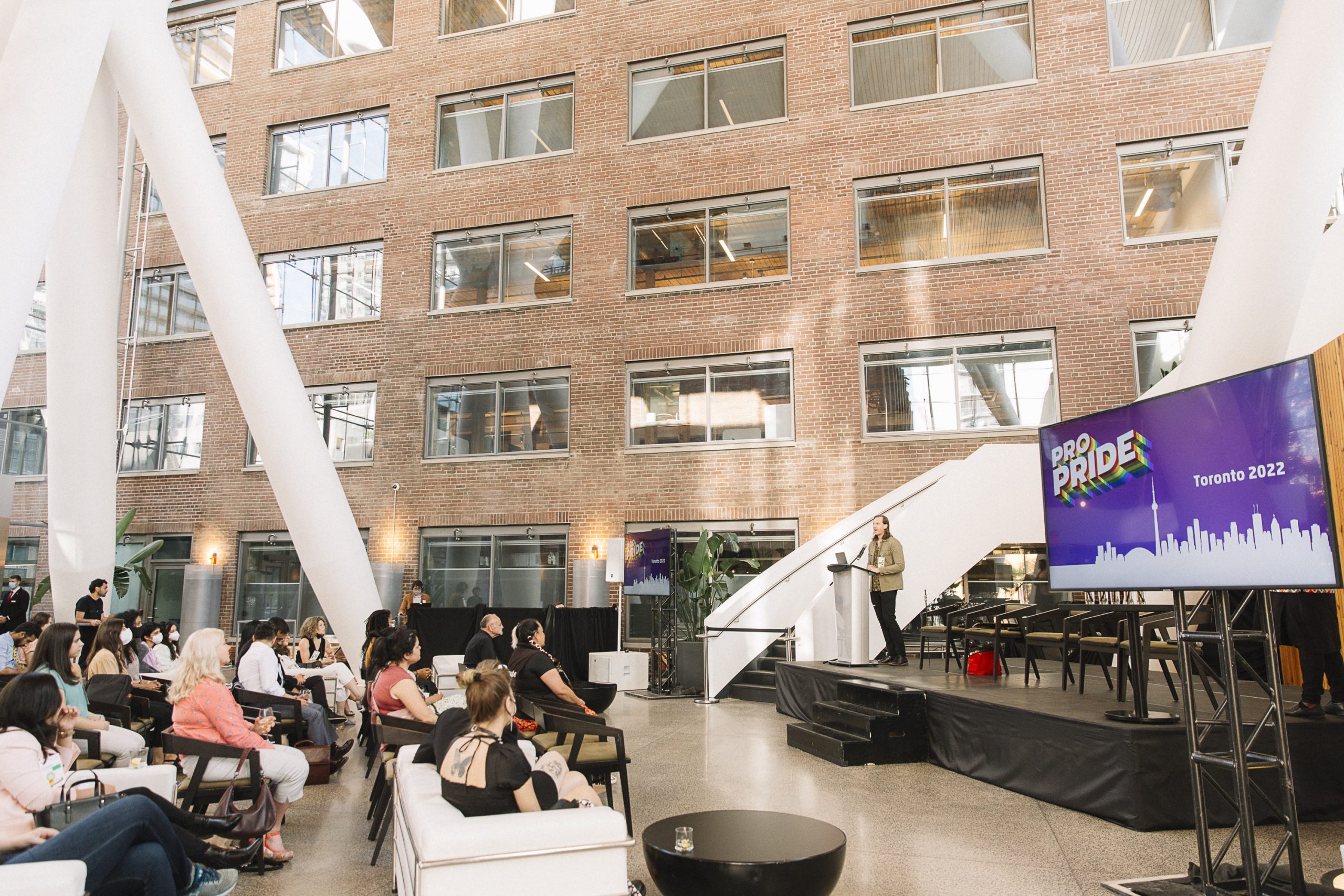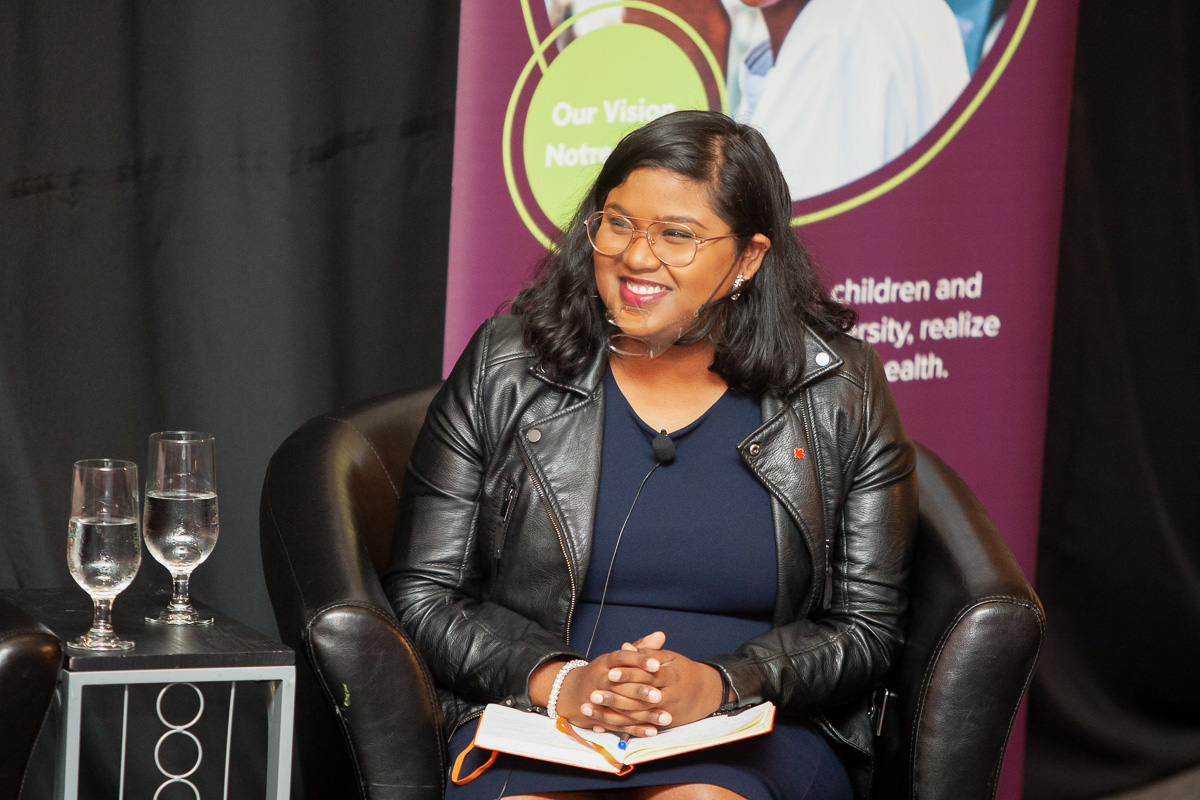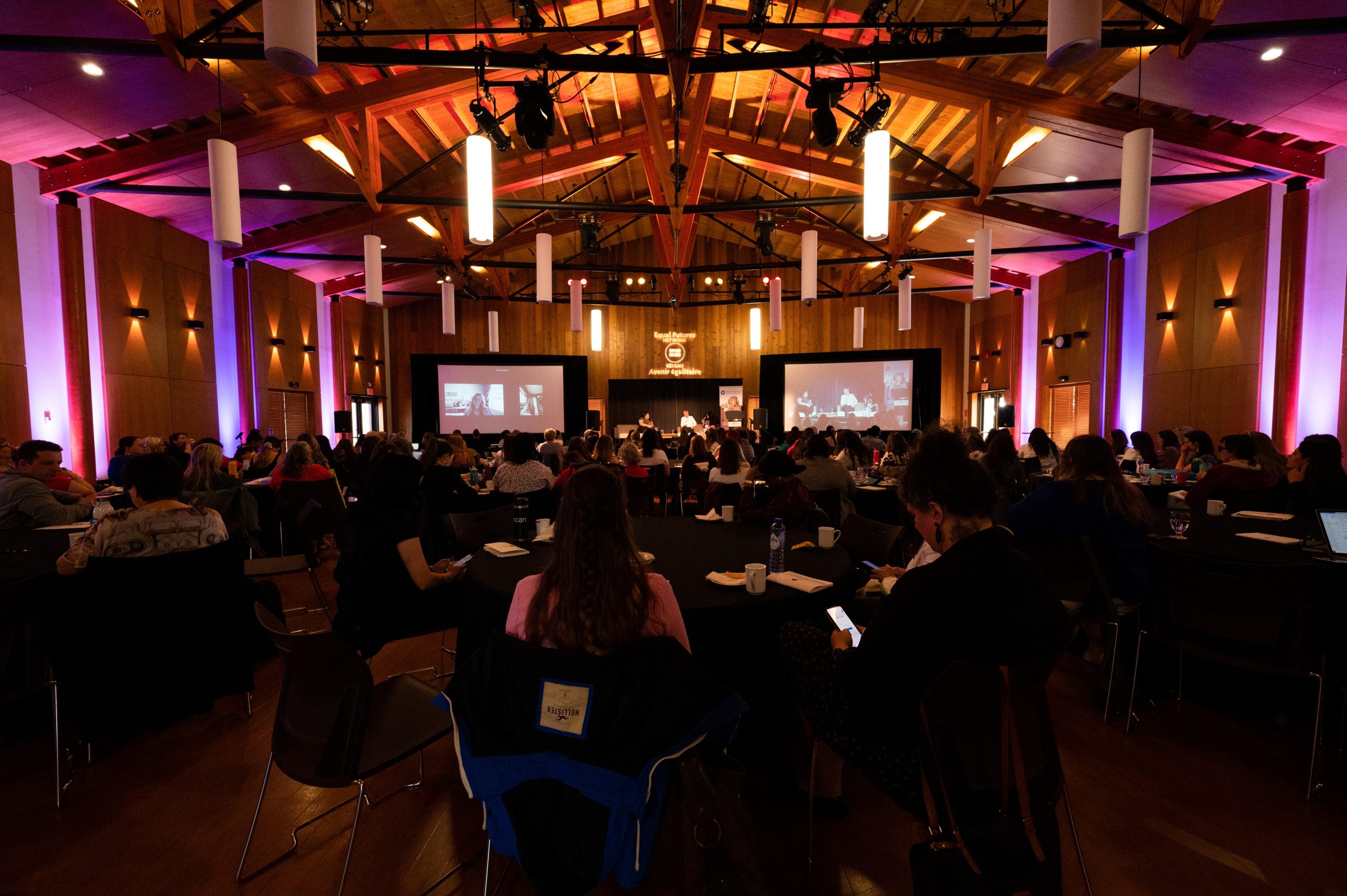
- If you could get Canadians to understand one thing about your work, what would it be?
Pride at Work Canada envisions workplaces and communities where everyone can bring their authentic selves to work. The organization empowers Canadian employers to build workplaces that celebrate all employees regardless of gender expression, gender identity and sexual orientation. As a member services agency for employers, we offer institutional education and guidance to companies and organizations that make a commitment to supporting 2SLGBTQIA+ inclusion. Those steps toward meaningful change can only happen with leadership involvement and support to ensure vertical and horizontal engagement, implementation and improvement of policies, and inclusive organizational cultures.
However, queer and trans inclusion is only one aspect of a more robust and dynamic Diversity, Equity and Inclusion (DEI) journey. The intersectional lens must be applied to respect people’s different identities and backgrounds. Systemic barriers create multiple experiences for folks on how they navigate society and how they are tokenized based on who they are. Being part of a workplace that celebrates diversity benefits everyone: employers, employees and other stakeholders.
- We often hear the phrase “representation matters” – What does this mean to you? How does your work embody this mentality and create opportunities for 2SLGBTQ+ communities to thrive?
When we see people with similar identities and experiences thriving in the workplace and in leadership positions, we know they are overcoming some of the systemic barriers and building (invisible) bridges, inviting others to follow a similar path. 2SLGBTQIA+ workers face barriers to career advancement and are less likely to hold senior or management positions compared to non-2SLGBTQIA+ people. It is common for employers to have a performative DEI approach rather than investing time and resources in ongoing processes to improve their organizational cultures. Having 2SLGBTQIA+ people in leadership roles is essential to shape inclusive environments, so we can move and work beyond tokenism.
Those changes help to qualify the numbers and develop a sense of belonging and justice for queer and trans professionals, showing that the employment strategy considers people with diverse identities and values them. This approach incorporates opportunities to bring our whole selves to work and live authentically, while also acknowledging the risks of uncovering who we are. This “representation matters” movement is more than what we can see as those “representatives” are opening up for many people to flourish and thrive in their industries and workplaces.
- What are some unique challenges that you have faced in your work? What are you doing to overcome them?
Despite 2SLGBTQIA+ inclusion and belonging being essential to workplaces, the process of getting there isn’t always prioritized or given the necessary resources. When budgets are under constraints, DEI work is sometimes the first thing to go. We know that workplaces are better when people can bring their whole selves to work, and that it’s worth it, both financially and morally, to put budget and staffing towards making that happen. Similar situations occur when hiring external 2SLGBTQIA+ consultants or speakers for training and speeches on queer and trans inclusion. Many professionals are underpaid or offered only visibility for their work when this work is how they make their income.
Inclusive workplaces can lead to higher levels of employee engagement and retention, and have a positive impact on employee well-being and productivity. At the same time, we’re seeing increases in anti-2SLGBTQIA+ laws, policies and hate in many places throughout the world, including across Canada. This creates added barriers to belonging for organizations and individuals. Workplaces have a role to play in building belonging, through inclusive benefits, policies, practices, and culture.
- What keeps you going? Are there any hopeful stories that you can share with us?
Despite anti-2SLGBTQIA+ efforts, we’ve seen so many concrete advancements. In the past few years, activists have successfully pushed the Canadian government to pass a ban on conversion therapy, trans people were represented in the Census for the first time, and behaviour based screening were implemented in blood donation policies. Companies have increasing options around specific gender inclusive health benefits plans. Perhaps most importantly are the stories of queer and trans joy when people are able to bring their full selves to work.
We have yet to see this nation where every individual can achieve their full potential at work. There are still several barriers to be removed, but we recognize and celebrate all positive changes so far. They show us that our vision is possible and will not be long before celebrating our diverse identities.
- What’s a piece of advice you would give to someone or an organization getting started in your area of work? Is there something you know now that has changed how you initially approached your work?
Often the most impactful parts of 2SLGBTQIA+ work aren’t the most visible parts. It’s easy for workplaces to march in a Pride Parade while skipping out on the deeper work of internal change. Education and training sessions are also just one small piece of a bigger puzzle, but a workplace isn’t inclusive just because they’ve done one training and put some rainbow flags up (though we do love training and rainbow flags). The sometimes less glamorous work of policy change can have a significant impact on who gets hired and promoted, and what their experience is on the job.
This year, Pride at Work Canada is celebrating our 15th Anniversary. Our work has grown and changed over the years, and we’ve grown and changed with it. What started out as an organization with no full-time staff has grown to a team of 16. There have been so many wins, the conversation around workplace inclusion has gone deeper and become more intersectional, and we’re so excited to keep building more inclusive workplaces.
The Equal Futures Network acknowledges that Indigenous people are the traditional guardians of Turtle Island, on the land also known as Canada






